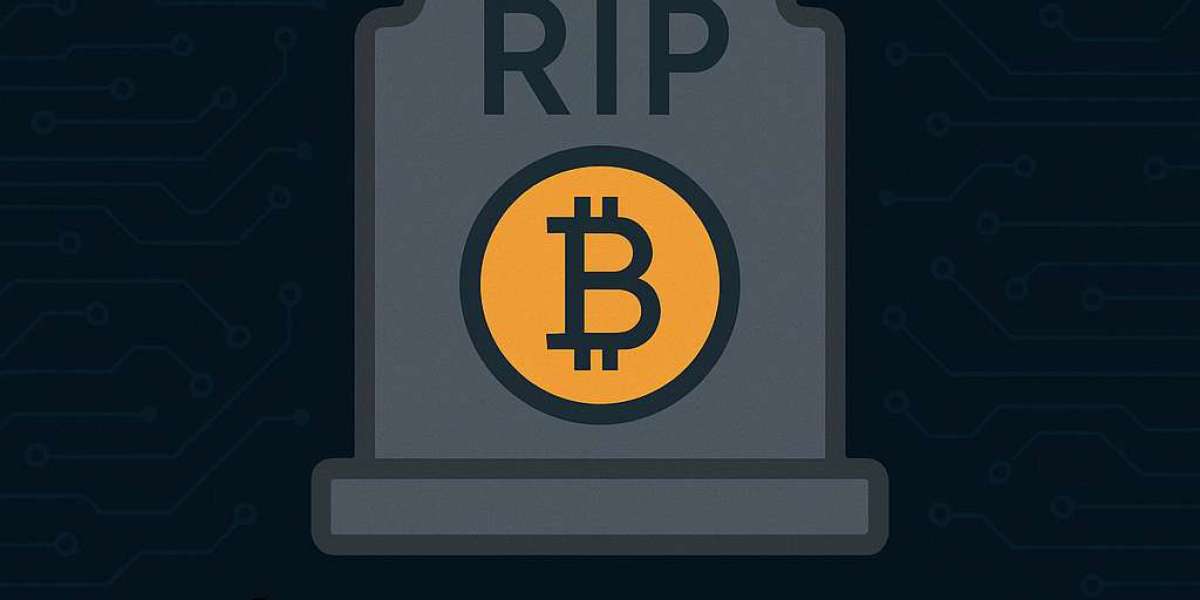When You’re Gone, What Happens to Your Wallet?
We don’t like talking about death—but in crypto, not talking about it can mean losing everything. Your Bitcoin, Ethereum, altbags, and NFTs don’t just vanish... but they might as well if no one can access them. Crypto doesn’t come with a “Forgot Password?” button for heirs. And unlike banks, there’s no customer support to call. This is where the conversation around death and decentralization gets real.
Surprisingly, most investors don’t even consider end-of-life planning when it comes to digital assets. But with the rising mining profitability in 2025, crypto portfolios are bigger than ever. People are mining smarter—not harder—using optimized rigs and AI-enhanced strategies. That means more people have assets worth protecting. So how do we pass them on when we’re no longer here?
Spoiler: it’s not as easy as writing down a seed phrase.
Crypto Wills? Not Quite There Yet
Unlike traditional estates, crypto inheritance doesn't follow a centralized process. Your family can’t just show up to a bank with a death certificate. If you don’t plan ahead, your holdings could be stuck on-chain, unclaimed forever. That’s the brutal side of decentralization—freedom comes with full responsibility.
But as mining profitability continues to climb, so does the need for solutions. Some blockchain startups are working on “crypto wills,” smart contracts that auto-distribute your assets when you're verified dead. Sounds cool, right? In practice though, they’re not mainstream yet, and they raise a ton of legal questions.
So, what’s the plan for now? Many serious HODLers are creating hybrid strategies: hardware wallets, shared multisig access, and paper instructions stored in fireproof safes. It’s not perfect, but it’s better than your crypto being lost in limbo forever.
The Cold Wallet Dilemma
Cold storage is awesome for security—until someone dies with the keys. There are horror stories of early Bitcoiners who mined when BTC was dirt cheap, locked it all in a cold wallet… and took the password to the grave. We’re talking millions in lost crypto.
This issue has resurfaced now that mining profitability has surged again. People are raking in profits from altcoin and Bitcoin mining, especially in low-electricity-cost countries. Yet if they die without sharing access securely, it’s all gone—forever.
Some investors are even splitting their seed phrases across trusted parties like a decentralized trust. For example, 1/3 to your spouse, 1/3 to your lawyer, and 1/3 to a sealed envelope in a bank. That way, no single party can access everything alone. It's not perfect—but it's practical.
Blockchain Can Record Transactions, But Not Death
Here’s the catch with decentralization: blockchains are great at recording what happened, but they don’t know who died. They’re not plugged into the physical world unless you add oracles or verification systems.
That’s where the conversation about solana vs ethereum comes into play. Both blockchains are fast and smart-contract capable, but they approach on-chain identity and inheritance differently. Ethereum has more mature tooling for identity, but Solana is gaining ground with real-time performance.
Neither has nailed a native inheritance system, though. We're seeing dApps on both chains testing out inheritance-based smart contracts—but adoption is slow. Most people still don’t trust a fully automated “death switch.”
So, while Solana might be beating Ethereum in TPS (transactions per second), neither has solved the death dilemma.
Death in the Multichain Era
Crypto isn’t just BTC and ETH anymore. From Solana to Avalanche, Polkadot, and L2s like Arbitrum, your portfolio might be scattered across 10+ chains. That means even if you plan inheritance on one, the rest could be left behind.
The solana vs ethereum debate is part of a bigger problem: fragmentation. One wallet might hold SOL, another holds ETH, and your DeFi gains could be in an entirely separate browser extension. Consolidating assets or documenting access becomes a must if you care about legacy.
Right now, some crypto users are creating legacy documents using password managers like 1Password or Bitwarden with shared vaults. Others prefer encrypted USBs with password-protected PDFs detailing recovery steps. It’s DIY—but it’s real-world effective.
Regulation Might Force the Issue
Crypto inheritance isn't just a user problem—it’s becoming a legal one. In the next couple of years, governments might push platforms to adopt recovery systems or require proof-of-death protocols for asset transfer. Think of it as a crypto version of probate court.
That said, hardcore decentralization fans won’t like it. After all, handing your private keys to a central service defeats the whole point of crypto. But it might be the only way to protect generational wealth as adoption grows.
Until then, it’s on you to prepare. Write it down. Share it wisely. And keep your heirs from scrambling after your digital ghosts.
Final Thoughts: Don’t Let Your Crypto Die With You
Crypto is about financial freedom—but that also means planning like a boss. Most of us are thinking about market pumps, mining ROI, or solana vs ethereum flips… but it’s time to also think about the endgame.
Because when you're gone, your crypto doesn’t go to heaven. It just sits there—unless you’ve planned for it.



